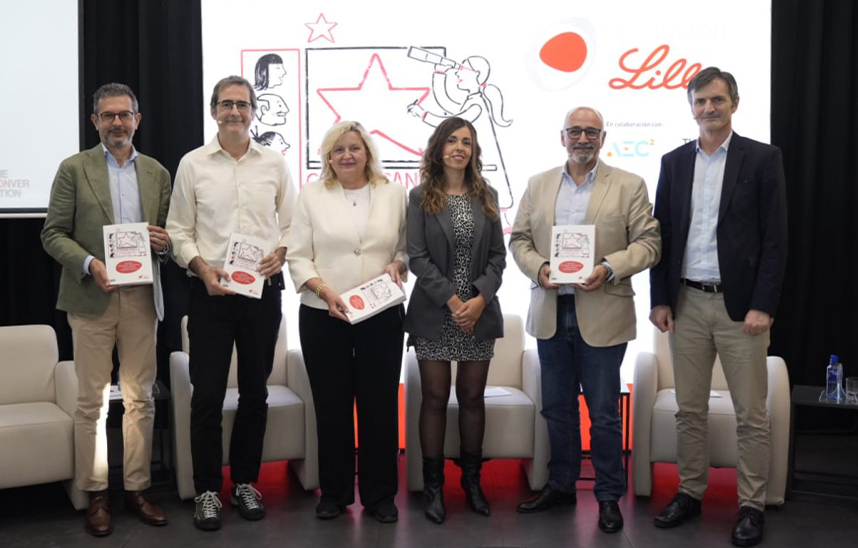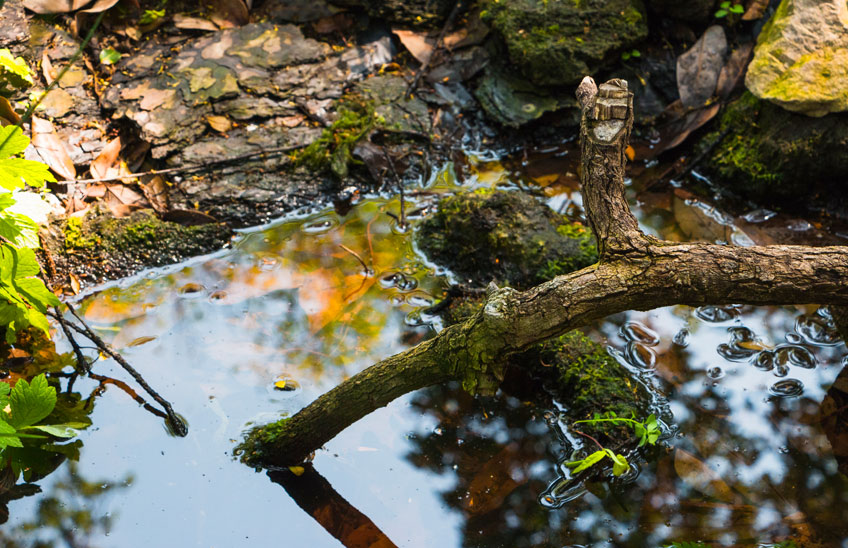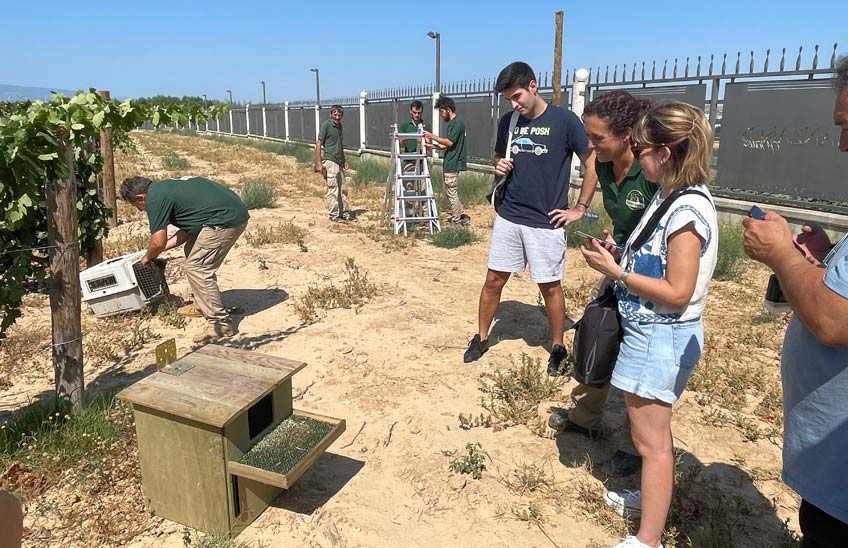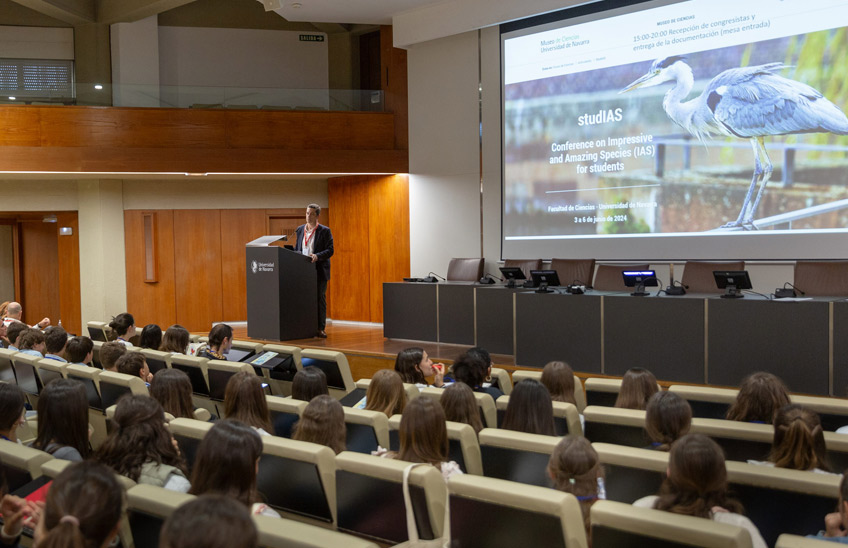Researchers from the University's BIOMA Institute study strategies to mitigate the impact of climate change on grapevines
The project Climavitis, which has an budget of 66,845.50 euros, will be developed during six quarters.
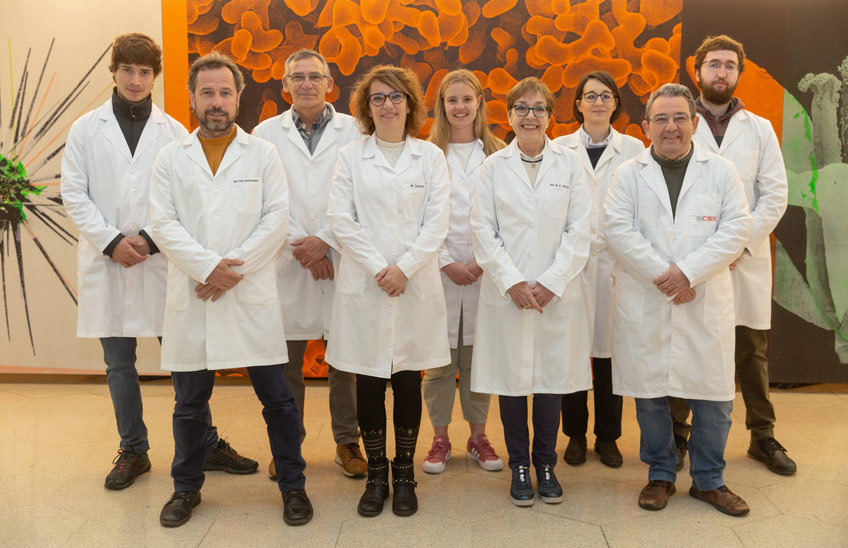
FotoManuel Castells<br>/Primera fila de izquierda a derecha: Héctor Santesteban, Mónica Oyarzun, M.Carmen Antolín y Fermín Morales. Segunda fila de izquierda a derecha: Carlos Guembe, Amadeo Urdiain, Andrea Cabodevilla, Inmaculada Pascual y Andoni Iglesias.
07 | 05 | 2024
Wine, according to programs of study scientists, is one of the oldest alcoholic beverages of mankind, with more than 8,000 years of history, and has been present in festivities, important events and in the signature of great treaties. However, global warming may currently affect wine production, accelerating and bringing forward the ripening of grapes and affecting their quality.
The Mediterranean region, one of the main vine growing areas, is one of the territories most affected by climate change. From the need to find solutions to this phenomenon arises the project CLIMAVITIS, in which researchers from Biodiversity and Environment Institute - BIOMA of the University of Navarra, in partnership with the Institute of Agrobiotechnology (IdAB - CSIC), study a strategy to mitigate the impact of climate change on the composition and quality of wine grapes.
"The increase in temperature causes an increase in the concentration of sugars in the grapes, which means a higher potential alcoholic Degree of the wine. Likewise, there is a reduction in both acidity and anthocyanin levels, compounds that give color to red varieties, causing an imbalance in the grape components and a loss of quality in its sensory parameters," says Inmaculada Pascual, principal researcher at project.
By applying two easy to handle and apply phyto-regulators, ethephon, an ethylene releasing compound, and abscisic acid (ABA), researchers from the BIOMA Institute and IdAB - CSIC try to stimulate the synthesis of anthocyanins in grapes and counteract the negative effects that the increase in temperature has on these compounds.
The novelty of this project lies in evaluating the efficacy of these compounds in a simulated global warming scenario, since previous programs of study have shown the positive effect of the application of ethephon and ABA on anthocyanin synthesis in grapes, but in no case in grapevines grown under predicted environmental conditions of agreement with the evolution of climate change.
This project will evaluate during six quarters whether the strategy based on the application of these phyto-regulators is a potentially usefultool for future viticulture and its adaptation to new climatic scenarios.
Climavitis has an budget of 66,845.50 euros, is being implemented in the framework of the Recovery, Transformation and Resilience Plan, funded by the European Union-NextGenerationEU and managed by the EATEX Food Hub.

